
1. Despite Progress Reversal, None of the SDGs Are Beyond Reach: SDSN Report
The Sustainable Development Solutions Network (SDSN) published its annual Sustainable Development Report, which includes the 2023 SDG Index and Dashboards, ranking the performance of all UN Member States on the SDGs. The report shows that, for the third year in a row, global progress on the SDGs has been static.
It warns “there is a risk that the gap in SDG outcomes between high-income countries (HICs) and low-income countries (LICs) will be larger in 2030” than in 2015 when countries adopted the 2030 Agenda for Sustainable Development. SDSN launched the report at a 21 June event in Paris, France, ahead of the Summit for a New Global Financing Pact. SDSN works to mobilize expertise for problem-solving for sustainable development. Its yearly resources provide data to track and rank the performance of all UN Member States on the 17 SDGs.
Thank you for your generous gift that will help us continue the production of this weekly, free publication

2. US Customs Officers Seize $2.7 Million Endangered Toatoba Bladders
Customs officers seized 242 pounds of swim bladders that had been concealed inside a commercial shipment of frozen fish fillets, United States Customs and Border Protection said in a statement.
The bladders, which allow fish to control their buoyancy, are delicacies and are considered to have medicinal properties in Traditional Chinese Medicine. CBP announced last week the 270 bladders seized were worth an estimated $2.7 million. CBP noted that DNA testing had determined the bladders belonged to the endangered species Totoaba macdonaldi, native to the Gulf of California in Mexico.
Totoaba are protected under the Endangered Species Act in the US and the Convention on International Trade in Endangered Species of Wild Fauna and Flora.”This seizure is thought to be the second largest seizure of its kind in the US and the largest Totoaba seizure in Arizona, to date,” CBP’s statement said.
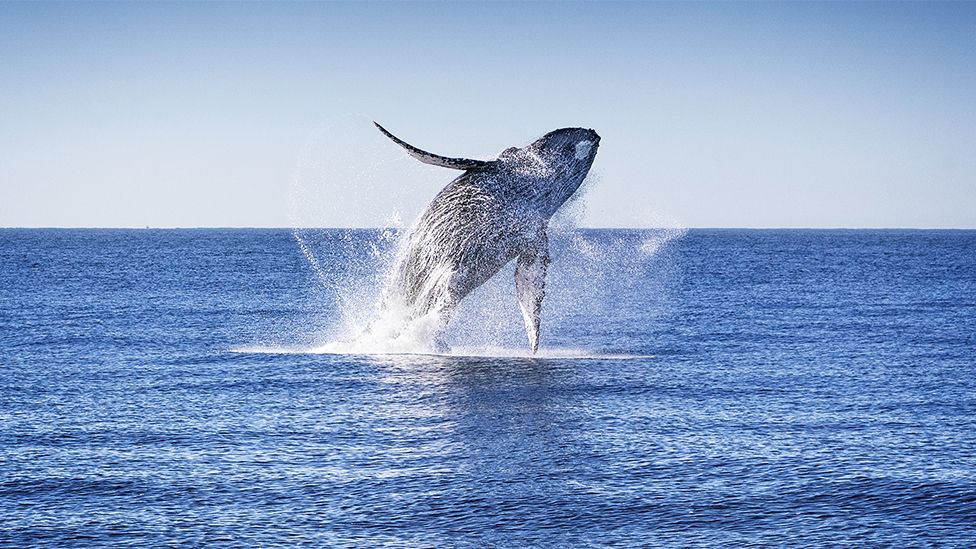
3. Dolphins, Whales, and Seals Not Protected by UK Government, Report Finds
A report by Members of Parliament (MPs) has found some marine wildlife is being failed by the UK government. Protections for these species are poorer compared to other countries, the Environment, Food and Rural Affairs Committee (Efra) found. Some of the threats to these animals include underwater noise, pollution in the water, and climate change.
The findings come as government efforts to scale up climate action have been described as “worryingly slow” by the government watchdog, the Climate Change Committee. Politicians on the Efra committee have suggested the UK should encourage countries they have trade deals with to stop killing marine mammals. Countries such as Iceland, Japan, and the Faroe Islands have hunted whales and dolphins, with supporters of this saying it’s a sustainable way of gathering food from nature and an important part of their cultural identity.
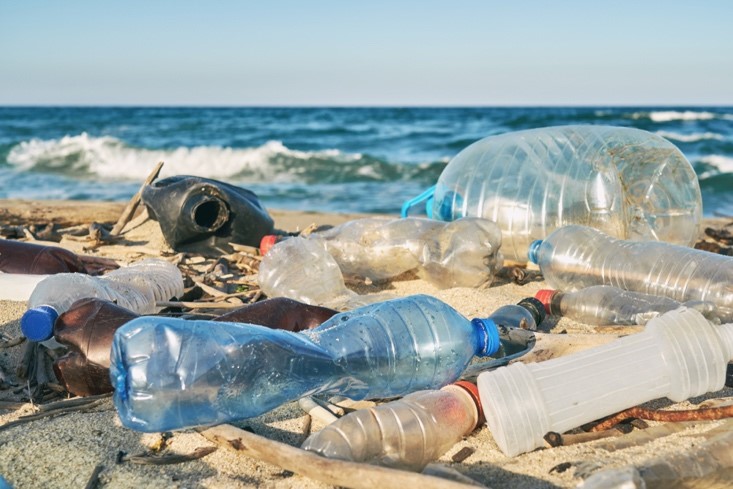
4. Pledge for a Plastic-Free World
Serious efforts are being made on national and international levels to prohibit plastic production to protect the world from a major environmental enigma. It is worth mentioning that the Government of Pakistan has not only prohibited the manufacture, import, and sale of non-biodegradable plastic bags but it has also banned their use across various big cities of Pakistan including Karachi, Lahore, and Islamabad.
Following the ban imposed by the federal government, provincial governments including the government of Sindh also imposed a ban on plastics which is anticipated to counter the negative impacts on coastal and marine ecosystems. It is quite encouraging that to combat the menace of plastic pollution, Pakistan has been actively participating in multiple global movements on a national level to curb the harmful impact of plastics on the environment.
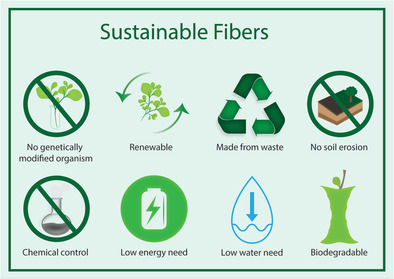
5. Revolutionising Textiles: Exploring Potential of Green Fibre for a Sustainable Future
The textile industry has long been associated with significant environmental impacts throughout the various stages of manufacturing, usage, and disposal. Recently, there has been a noticeable shift as many textile companies are reorganizing themselves to procure greener materials and implement eco-sustainable processes with innovative solutions. They are investing in research and development to explore alternative fibres and manufacturing techniques that prioritize environmental sustainability.
They aim to minimize water consumption, reduce the use of chemicals, and adopt eco-friendly dyes and finishing processes. Additionally, they focus on optimizing energy usage, minimizing waste production, and promoting a circular economy by encouraging recycling and upcycling initiatives. These industries are committed to creating a sustainable environment that strikes a careful balance between financial stability and social obligations. By investing in green technologies and sustainable practices, they are working to make their operations environmentally friendly and minimize their carbon footprint.

6. Failure to Address Climate Change, Delayed Action Spell Consequences for Agric Sector
Professor Elvis Asare-Bediako, Vice Chancellor at the University of Energy and Natural Resources, has cautioned that any failure and delay in addressing climate change would have catastrophic consequences on the food and the agricultural sector. He said the effects of climate change on food systems were expected to be widespread, intricate, varying geographically and temporally, and significantly influenced by socioeconomic conditions.
Dr. Naomi Kumi, a Lecturer in, the Department of Atmospheric and Climate Science at the University of Energy and Natural Resources, said, “If we continue destroying our forest cover, water bodies, lands, burning charcoal and tyres, in the next five years it will be dangerous for our survival.”, and, “If we don’t take stringent measures where the policy would put some “punishment” on some activities that adversely affect climate change our economy would be affected largely,” she added.

7. 32nd Meeting of the CITES Animals Committee: Opening Remarks by CITES Secretary-General Ivonne Higuero
“The Committee has a packed agenda with 50 items to be discussed with 55 documents covering a wide range of terrestrial and aquatic species. The agenda includes both the review of significant trade process that is critical to ensure trade in Appendix II listed species is sustainable and the review of trade in animal specimens reported as produced in captivity.
The Committee will consider the progress made in the implementation of decisions relating to the development of new or updated guidance material on non-detriment findings. The Committee will advise on the need for the revision of identification materials that are essential tools used by Parties daily to implement and enforce the Convention. In terms of species conservation and trade, the Committee will consider a broad range of issues relating to…aquatic species such as eels, shark and rays, queen conch and marine ornamental fishes.”
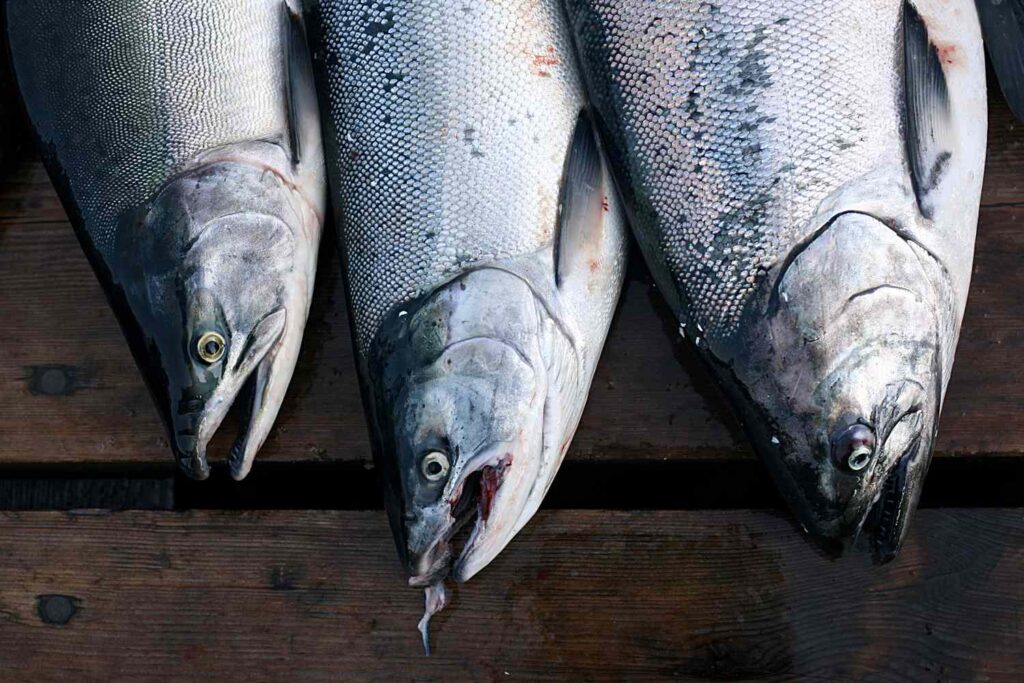
8. Invasive Salmon Species Threatens UK Waters, Experts Warn
Experts have issued a warning about the imminent arrival of an invasive salmon species in UK waters. The non-native species, known as pink salmon, is expected to pose a threat to native salmon and other aquatic wildlife. The pink salmon, originating from the Pacific Ocean, has been spotted in other parts of Europe and is known for its ability to rapidly reproduce and outcompete local species for resources.
Conservationists fear that the arrival of pink salmon could disrupt the delicate balance of ecosystems and impact commercial and recreational fishing. Authorities are urging the public to report any sightings of pink salmon to help monitor their spread and prevent their establishment in UK waters.
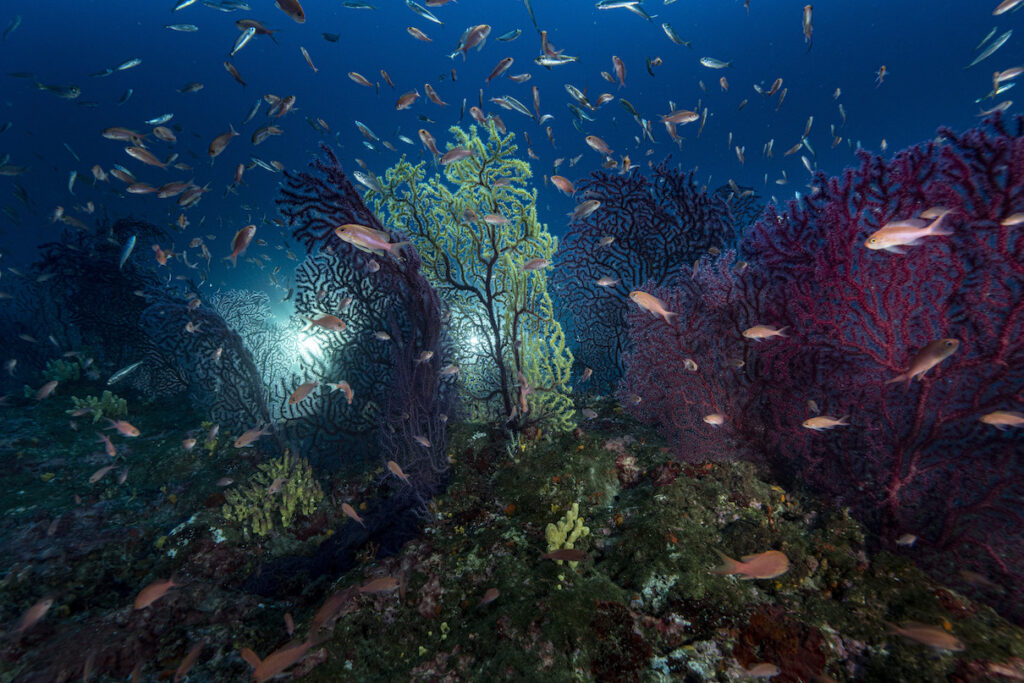
9. Deep-Sea Corals in the Mediterranean Prove Resilient to Heat Waves
Scientists have discovered new hope for the Mediterranean’s marine ecosystem as deep-sea corals are found to withstand heat waves. Researchers exploring the depths of the Mediterranean Sea have identified resilient deep-sea coral communities that can endure elevated water temperatures.
These corals, located at depths of around 1,000 meters, can recover from thermal stress and continue to thrive. This finding offers insights into the resilience of marine ecosystems and their capacity to adapt to climate change. Protecting these deep-sea corals and their habitats becomes crucial for the preservation of biodiversity and the long-term health of the Mediterranean’s marine life.

10. Swiss Call for Moratorium on Deep-Sea Mining
Switzerland is advocating for a moratorium on deep-sea mining, joining the global movement against this potentially harmful practice. Concerns over the environmental impact of deep-sea mining have prompted Swiss officials to propose a halt to exploration and exploitation activities until thorough assessments are conducted.
Deep-sea mining involves extracting minerals from the ocean floor, which could cause irreversible damage to marine ecosystems and biodiversity. The Swiss government is urging international cooperation and comprehensive regulations to ensure the protection of deep-sea habitats and the sustainable use of ocean resources.
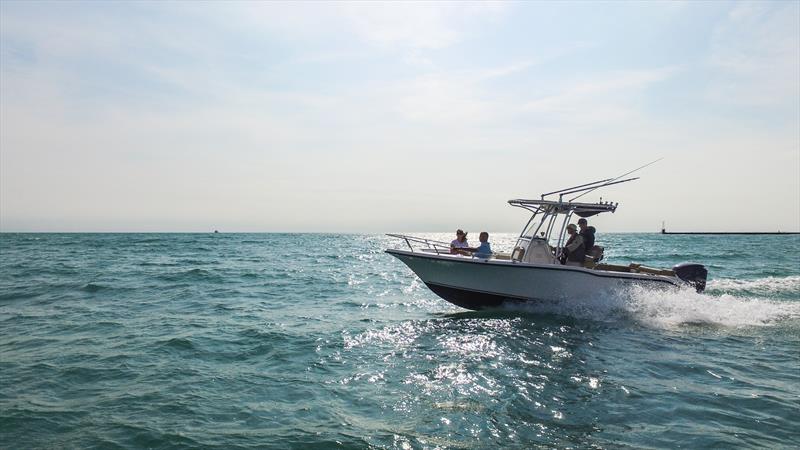
11. Boats Oppose Vessel Speed Restrictions
A community is standing up against proposed vessel speed restrictions to protect local marine life. Residents and stakeholders are challenging plans to implement speed limits on vessels in certain areas. While the restrictions aim to reduce collisions with marine animals and mitigate noise disturbance, opponents argue that they would hinder economic activities like tourism and fishing.
They claim that alternative measures, such as education and awareness campaigns, should be prioritized to promote responsible boating practices. The disagreement highlights the ongoing debate between conservation efforts and the interests of local communities, emphasizing the need for balanced solutions that consider both environmental concerns and socioeconomic factors.
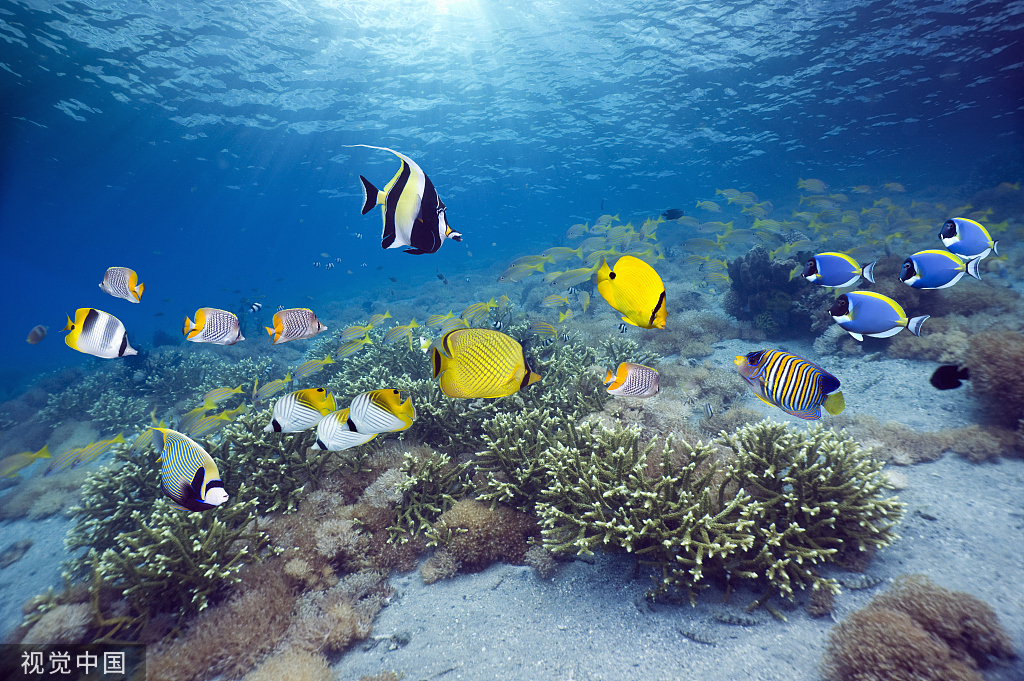
12. China Implements Plastic Waste Import Ban
China has introduced a ban on the import of plastic waste, signaling a significant step in addressing global plastic pollution. As the world’s largest importer of plastic waste, China’s decision is expected to have far-reaching consequences for the recycling industry and waste management practices.
The ban aims to promote domestic recycling capacity and encourage other countries to develop their recycling capabilities. China’s action underscores the urgency of finding sustainable solutions to the plastic waste problem and the need for international collaboration to combat the environmental impacts of plastic pollution.
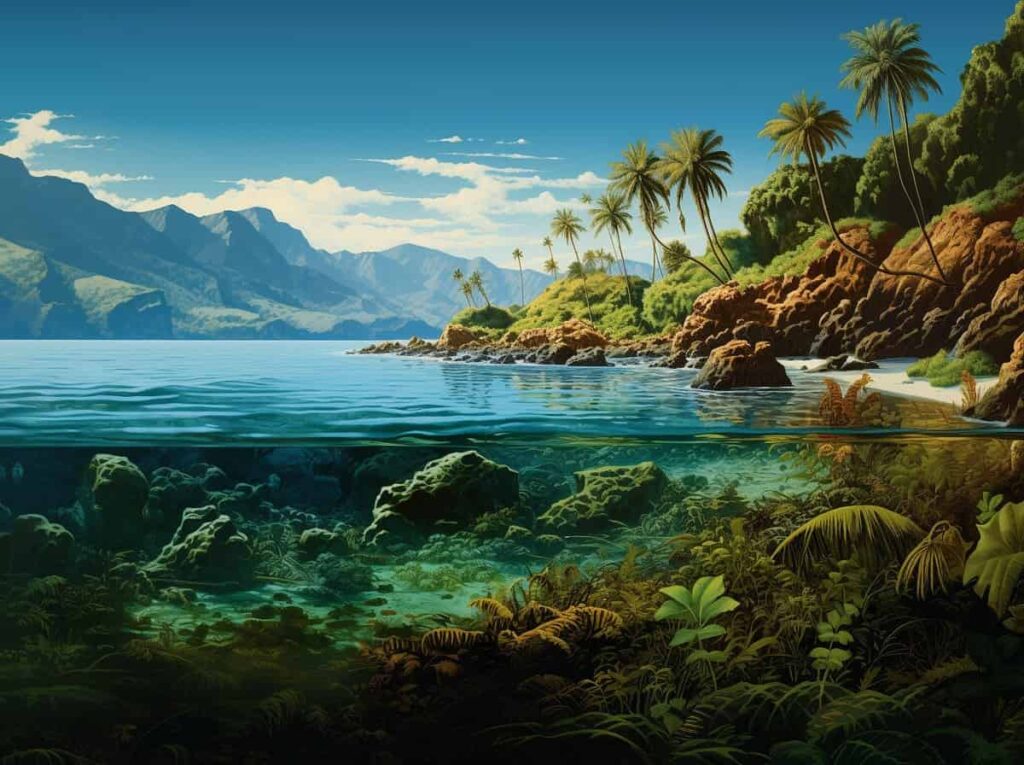
13. Costa Rica Secures Grant to Preserve Pacific Marine Corridor
Costa Rica has secured a significant grant to support the conservation of the Pacific Marine Corridor, a vital ecological area. The grant, provided by an international organization, will fund conservation initiatives to protect marine biodiversity and ecosystems along the country’s Pacific coast. The Pacific Marine Corridor is home to diverse marine species and serves as an important migratory route.
The funding will be used to establish protected areas, enhance surveillance and enforcement measures, and promote sustainable fishing practices. This grant is a significant boost to Costa Rica’s ongoing efforts to safeguard its marine resources and contribute to global conservation goals.
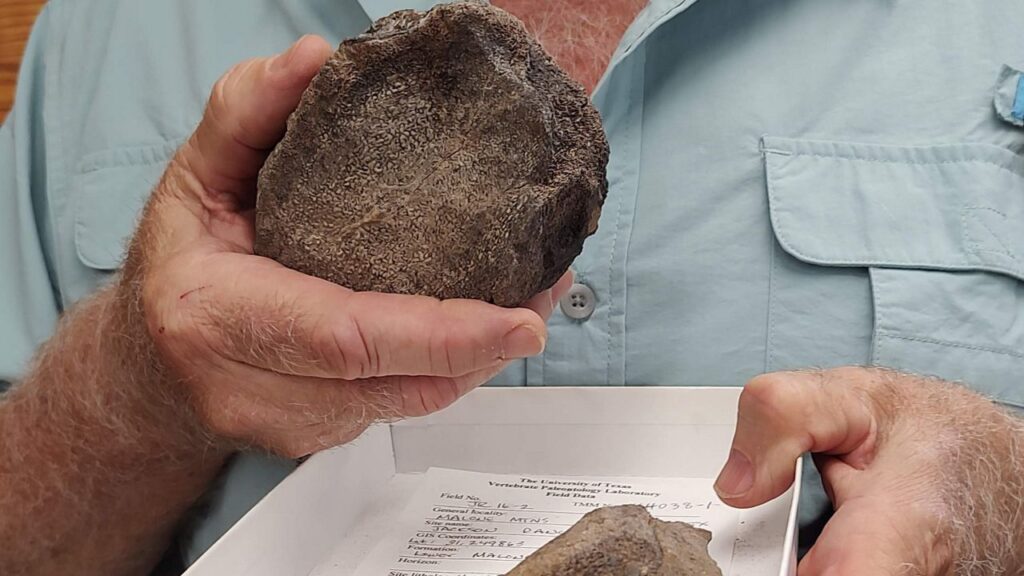
14. Newly Discovered Jurassic Fossils in Texas
A team led by scientists at The University of Texas at Austin has filled a significant gap in the state’s fossil record — describing the first known Jurassic vertebrate fossils in Texas. The weathered bone fragments are from the limbs and backbone of a plesiosaur, an extinct marine reptile that would have swum the shallow sea that covered what is now northeastern Mexico and far western Texas about 150 million years ago.
The bones were discovered in the Malone Mountains of West Texas during two fossil hunting missions. The team found several other specimens that look at the ancient shallow marine environment, such as petrified driftwood filled with burrows from marine worms and the shells of clams, snails, and ammonites. A paper describing the bones and other fossils was published in Rocky Mountain Geology on June 23.

15. The International Consortium on Combating Wildlife Crime (ICCWC) Launches Biannual Report 2021 – 2022
Wildlife crime is a complex and cross-cutting issue, interconnected to many of the challenges the world faces. It drives many wild animal and plant species, terrestrial and marine, towards extinction, exacerbates hunger and poverty, creates conflict and instability, poses a risk to the health of our communities, undermines the rule of law and good governance, and hinders progress toward achieving the United Nations Sustainable Development Goals (SDG).
ICCWC works with countries to strengthen their criminal justice responses to help deter wildlife crime, protect the planet’s remaining natural resources and support socio-economic change. ICCWC partners with many international organizations including the Convention on International Trade in Endangered Species of Wild Fauna and Flora (CITES). The work of ICCWC contributes to SDG14, Life Below Water.
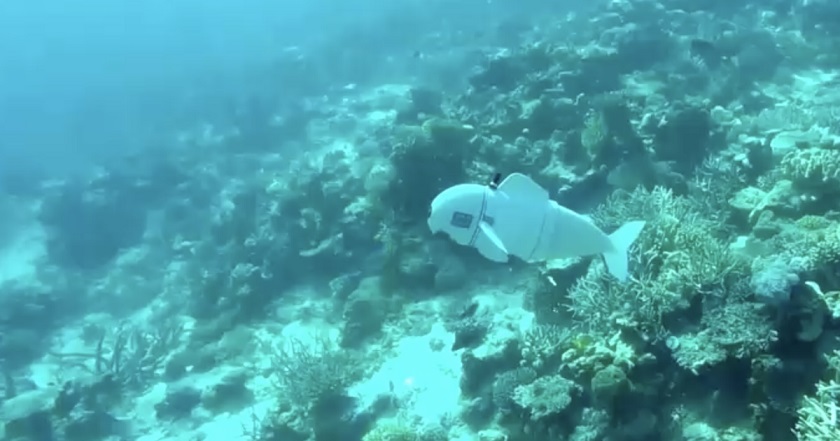
16. Silent Spy Fish: Advancing Ocean Science with Robot Technology
Scientists are exploring the potential of a robot fish to revolutionize ocean science by providing a non-disruptive approach to studying marine life. Researchers at the Massachusetts Institute of Technology (MIT) have developed a robot fish called SoFi that mimics the movements of real fish and can navigate underwater silently. Equipped with sensors and a camera, SoFi is capable of capturing high-resolution images and collecting data in marine environments without causing disturbances or alarming marine creatures.
This innovative technology opens up new possibilities for studying marine life and gathering valuable information about underwater ecosystems. By blending seamlessly into the natural environment, the robot fish could help scientists gain insights into the behavior, interactions, and health of marine species without disturbing their habitats. This breakthrough could lead to significant advancements in ocean science and conservation efforts.
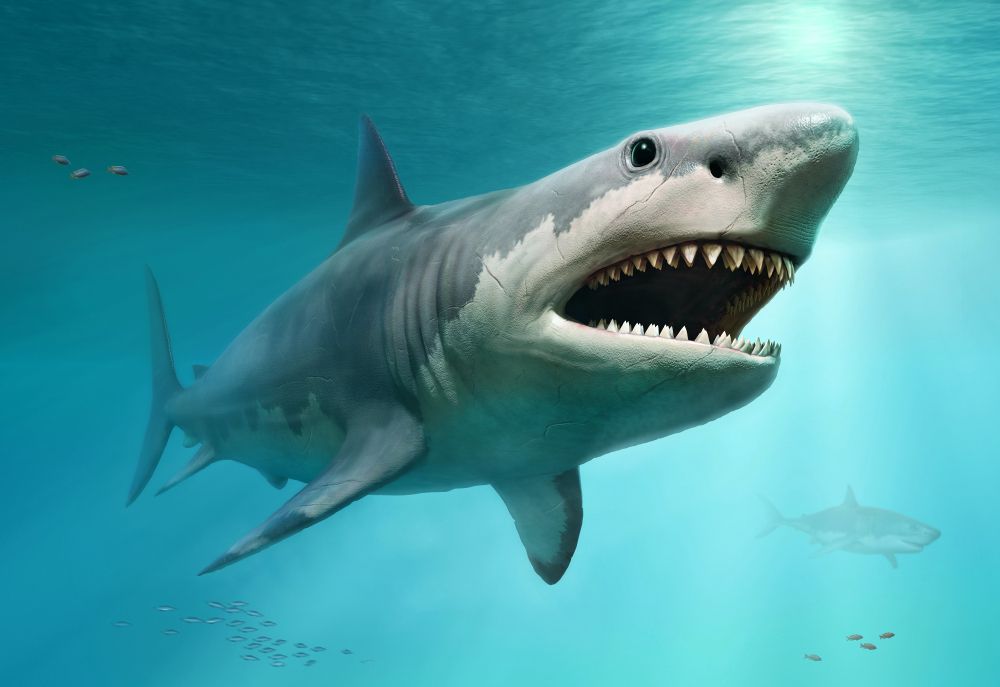
17. A Warm-Blooded Enigma of the Deep?
The question of whether the prehistoric giant shark known as the Megalodon was warm-blooded has intrigued scientists for years. Recent research published in the journal Frontiers in Marine Science has reignited the debate, suggesting that the Megalodon may have possessed warm-blooded characteristics. While most sharks are cold-blooded, the study analyzes the evolution and behavior of the Megalodon to propose that it could have been an exception.
Warm-bloodedness would have allowed the Megalodon to maintain a higher body temperature, enabling it to explore colder ocean depths and adapt to various environments. The study points to the Megalodon’s size, diet, and possible movement patterns as evidence supporting the theory of warm-bloodedness. However, this hypothesis remains speculative due to the scarcity of fossil evidence. Further investigations and discoveries are necessary to unravel the mysteries surrounding this ancient marine predator.




